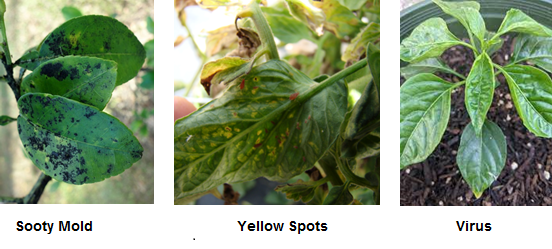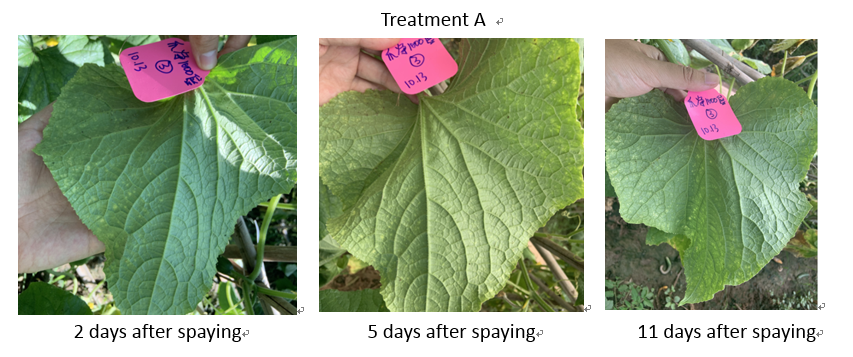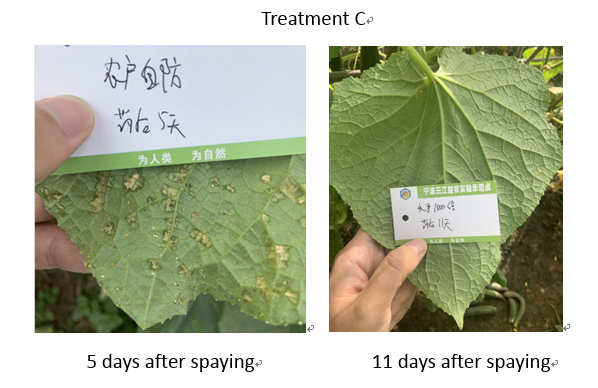Case Studies
We provide plant protection and plant nutrition products that help build healthy and sustainable food systems.
Pest Control in Aphids
Insecticide
Aphids are small, soft-bodied insects that feed by sucking the nutrient-rich liquids out of plants. In large numbers, they can weaken plants significantly, resulting in discolored and withered leaves, and harming crops, flowers, and fruits. The sap-sucking insects excrete honeydew and secretions that induce sooty mold. The mold does not infect plants but covers leaves to block light and make photosynthesis less efficient. Moreover, aphids can be a vector of viruses. Plant viruses are easily transmitted through sucking and piercing wounds. Aphids can reproduce throughout the year with or without mating. They multiply in numbers rapidly with such an efficient reproduction strategy. Thus, it is important to control before a population outbreak.

Agricultural, physical, and chemical controls are often used for aphid management.
Agricultural control: field management matters. Remove weeds and sources of aphids before sowing, prepare the land and sow seeds in time, and cultivate strong seedlings. Keep reasonable planting density to ensure ventilation and light transmission.
Physical control: Repel aphids away by covering the field with silver reflective mulches; Trap and starve aphids to death by using their tropism to specific wavelengths of light. The yellow sticky capturing board could really help.
Chemical control: Sunjoy Agro recommends the use of Aphistar (Acetamiprid 150g/L + Flonicamid 100g/L OD) to control aphids, especially at the peak of aphid nymphs, spray evenly on the tender shoots and leaves. Acetamiprid acts on the nicotinic acetylcholine receptors at the synapses of the insect nervous system, interfering with the stimulation conduction of the insect nervous system, causing the blockage of the nervous system pathways, resulting in the accumulation of the neurotransmitter acetylcholine at the synaptic site, and finally paralyzes insects to death. Flonicamid has contact and stomach poisoning effects. Aphids stop feeding shortly after ingesting the active ingredient and eventually die of starvation. The combination of the two modes of action makes the formulation have great systemic absorption, contact killing, and stomach toxicity, quick-acting, and long-lasting effects. Furthermore, there is negative or very low cross-resistance between Flonicamid and the existing pesticides, so the product is a good choice for resistance management.
SUNJOY AGRO conducted many field trials on cucumber plants to confirm the control effect on aphids. One of the trials was conducted on October 13, 2022, in an open field planting area situated in Baoshan City, Yunnan Province. Before spraying, there were a large number of aphids feeding on each leaf, with visible counts of 50-100 aphids. Furthermore, the situation was worsened by the occurrence of sooty mold after the aphid damage.
We used three treatments separately for aphid control on cucumber plants:
Treatment A: 1000 times dilution of APHISTAR;
Treatment B: 500 times dilution of APHISTAR;
Treatment C or the grower’s solution: 1000 times dilution of 3.3% Abamectin + 20.7% Flonicamid SC and 750 times dilution of 90% Dichlorvos SL.
According to the observations, two days after treatment, the mortality rate of aphids for all three treatments was above 90%. However, there was an emergence of new aphids in the area treated with the grower's solution on the 5th day after spraying. This is in contrast to Treatment A and B, where APHISTAR was used, and no new aphids were observed even on the 11th day after the application.


Explore More

